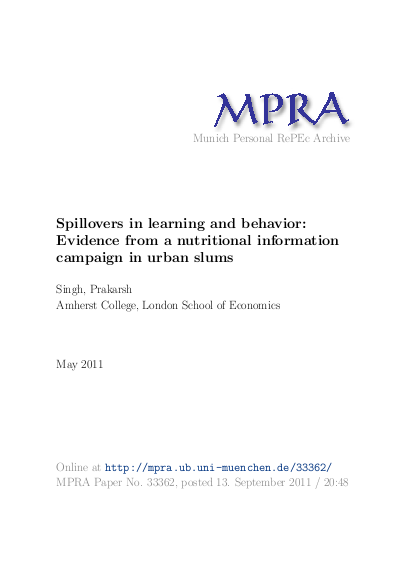
The paper provides evidence for spillovers in learning and behavior within urban slums in Chandigarh, India. In an experiment, mother =s of children enrolled in government day-care centres were provided recipe books to lower their price per calorie. Theory suggests that if learning takes place among untreated mothers in the same slum cluster, it may increase or decrease their food expenditure. Results from a difference-in-differences analysis show that nutritional knowledge increases among untreated mothers and there is a corresponding reduction in food expenditure. These neighbouring mothers exhibit learning spillovers and a reduction in expenditure regardless of their level of literacy.
Resource collections
- UN Habitat - Urban Response Collection
- Urban Response - Urban Crisis Preparedness and Risk Reduction
- Urban Response Collection - Community Engagement and Social Cohesion
- Urban Response Collection - Economic Recovery
- Urban Response Collection - Environment and Climate Change
- Urban Response Collection - Housing, Land and Property
- Urban Response Collection - Urban Crisis Response, Recovery and Reconstruction
- Urban Response Collection - Urban Resilience